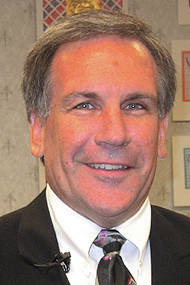
Since I write primarily about education, readers often send me links to stories highlighting what research tells us about how kids learn. I was recently sent a link that recapped a study conducted by Jessica Logan, an assistant professor of educational studies at Ohio State University, titled “A Million Word Gap for Kids Who Aren’t Read To At Home.” Ms. Logan sought to quantify the impact parents who read (or who do not read) to their kids has on vocabulary development.
What Ms. Logan discovered is that a child between birth and age 5 whose parents read five books a day to him or her hears 1.4 million more words than a child who is never read to by the time he/she enters kindergarten. She notes that, “Kids who hear more vocabulary words are going to be better prepared to see those words in print when they enter school,” making them “likely to pick up reading skills more quickly and easily.”
What is also important, she says, is that the vocabulary in books is more complex than that used in everyday conversations, and those words often spur additional dialogue as the book is being read. This, too, helps to increase vocabulary.
Ms. Logan revealed that the impetus for this study was previous research that found that “about one-fourth of children in a national sample were never read to and another fourth were seldom read to” (by their parents) from birth to age five.
The fact that many parents don’t read to their kids should probably comes as no surprise given the fact that politicians, who we inexplicably allow to control the narrative on how children learn, continue to pretend as if the role parents play in their children’s lives is inconsequential.
Ms. Logan’s study does not even contemplate the results from other studies, which have shown that children who grow up in homes in which conversational language is virtually non-existent hear millions fewer words than children who grow up in a language rich environment. In other words, the problem is even worse than her study shows.
Are we really surprised that children who hear more words are likely to know more words?
Since Ms. Logan’s research focused specifically on the number of words heard by children, it doesn’t consider the other benefits that arise from parents reading to their children. For example, we know that it is far better for a young child to be safely and comfortably nestled in the arms of a parent who is reading to him or her than it is for that same child to be plopped down in front of the television watching reruns of “The Jerry Springer Show,” with the requisite idiotic adults screaming and yelling at one another.
In other words, in addition to the obvious advantages in vocabulary acquisition for children who are exposed to complex language as early as possible, the social and emotional benefits are every bit as important.
How can it be, then, that our political “leaders” ignore these facts at every turn when they create laws governing education?
Some legislators would like a gold star for finally acknowledging that environmental factors play a role in a child’s development, but they deserve no such award. Since they continue to forge ahead with foolish laws that hold schools solely accountable for a child’s development despite what the research tells us, their public pronouncements mean nothing.
To defend themselves, they will argue they can’t force people to be good parents, and doing something is better than doing nothing. After all, they tell us, their intentions are pure. However, their “but, we have good intentions” excuse is such hogwash. If they truly had good intentions, they would engage in public dialogue about the role parents play in their children’s lives.
But, they refuse to do it. So, allow me to help them.
Parents, you matter, more than anything else in your child’s life, and certainly more than those ridiculous school-based laws politicians create. The academic, social, emotional, and behavioral foundation you lay for your young children is the most precious gift you can give them, and it will follow them for a lifetime. When you read to them, talk to them, teach them, hug them, protect them, expect big things from them, and love them, you increase their opportunity for success. Schools can support, but not replace you.
And, that’s a fact.


